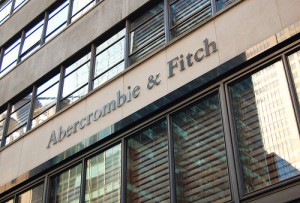Religious Rights in the Workplace, Abercrombie & Fitch Discrimination
August 11th, 2015
In a decision that may have come as a surprise to many, the Supreme Court found in favor of a woman who filed a lawsuit against a potential employer, which she claimed denied her application for employment because of her religious expression. Since then, the Abercrombie & Fitch discrimination case has changed hiring rules across the nation. The Court’s decision is not as simple as many may think, however, and may require further study and litigation to provide true protection for individual’s rights to the freedom of expression in the workplace.
Background and Summary
This case began in 2008, when an American teenager applied to be hired as a “model” for the retail store Abercrombie & Fitch. Known for its representation of ‘true hip Americana,’ it was no secret that Abercrombie had different rules than other retailers for hiring store employees. In fact, this case has not been the only trouble this chain has publicly fought in the courtroom, but it is the only one to have the ultimate court weigh in on its policies. The applicant was brought in for interview and it was at this point that Abercrombie’s hiring team discovered that she was a devout Muslim who wears a headscarf as part of her religious observation. After being told that she was not being hired, and that the headscarf played a role in the denial, she brought her case to the Equal Employment Opportunity Commission (EEOC). The EEOC brought a lawsuit on her behalf and the case made its way through the trial court, appeals process, and finally to the Supreme Court.
Throughout the process, Abercrombie argued that it did not discriminate when it applied its “no hats/caps” policy to the applicant, as she did not request a religious exemption (or accommodation) to the rule and that the rule applied equally to all applicants. The Supreme Court, however, and stated that the law does not require an employer be completely neutral when it comes to religion. It stated further that the law gives “favored treatment” to religious practices, and requires that employers accommodate their employees’ (and applicants’) religious observations by making the necessary changes to their policies and procedures.
Future Impact
While it is unknown what the full impact of this decision will be in the future, what is known is that the Court has dealt a blow to employers who are unwilling to comply with anti-discrimination laws and have shown that the Constitution’s promise of religious freedom is protected. In a decision that has been seven years in the making, and yet called “really easy” by Justice Antonin Scalia, the Court has once again upheld Americans’ rights in the face of oppression. There may not be a day when there is no argument over the meaning of the words as written by our founding fathers, especially in the context of religion, but ULC Case Law will continue to monitor disputes that make their way through the court system. Any new developments or affirmations of existing law will be reviewed and explained so that future generations can benefit from present vigilance.


